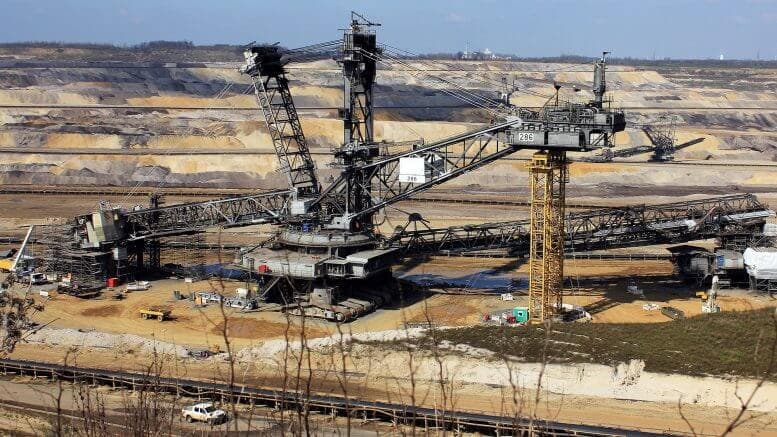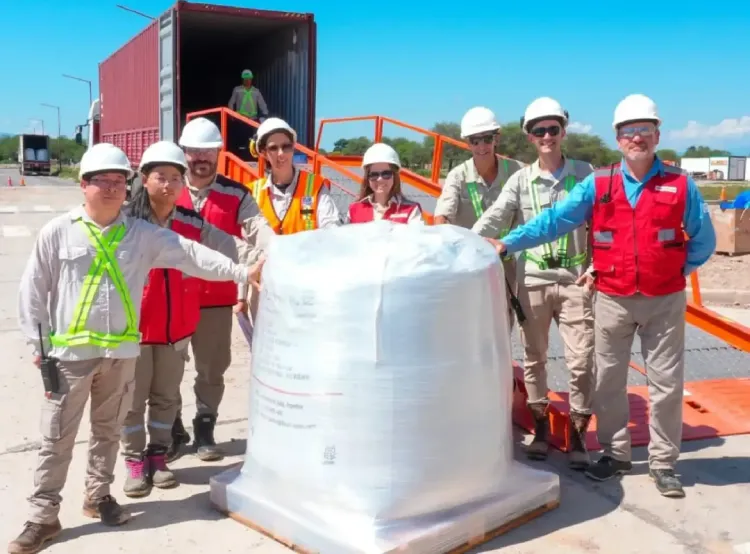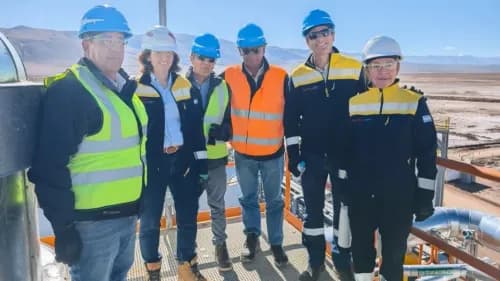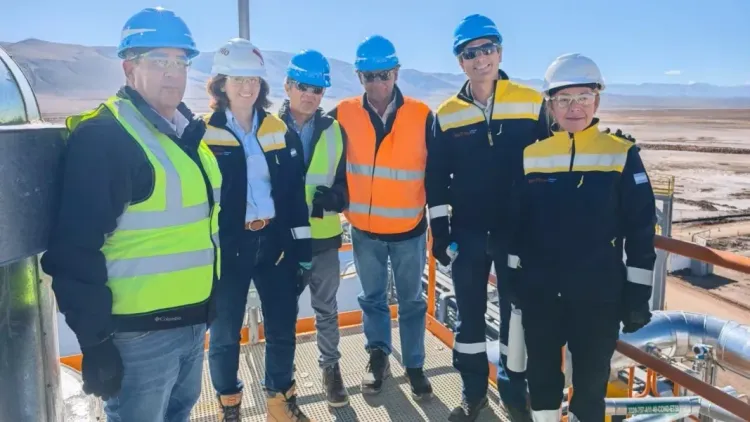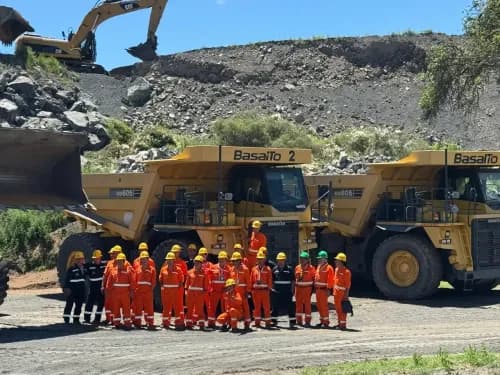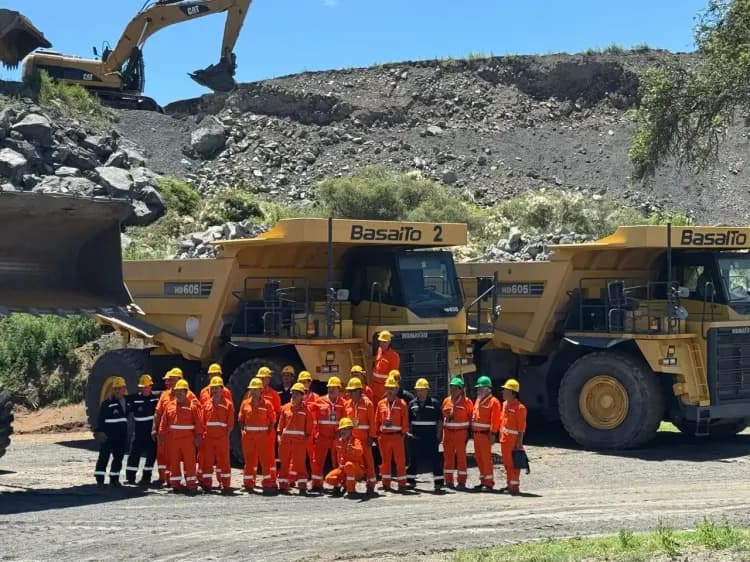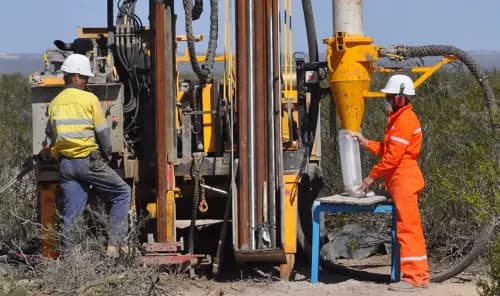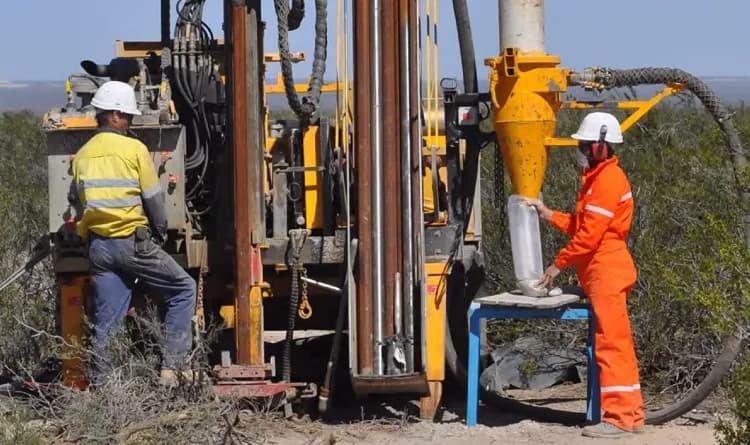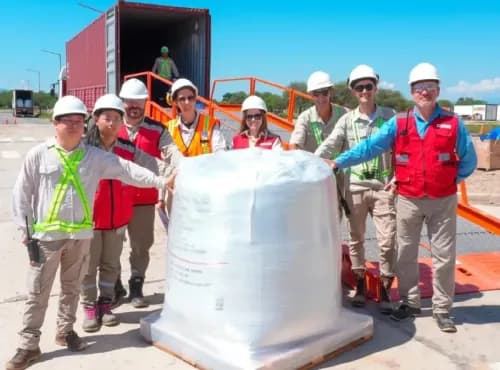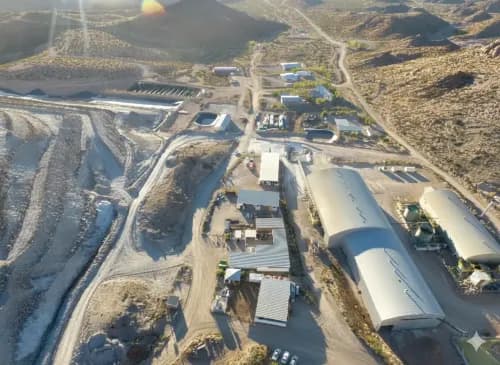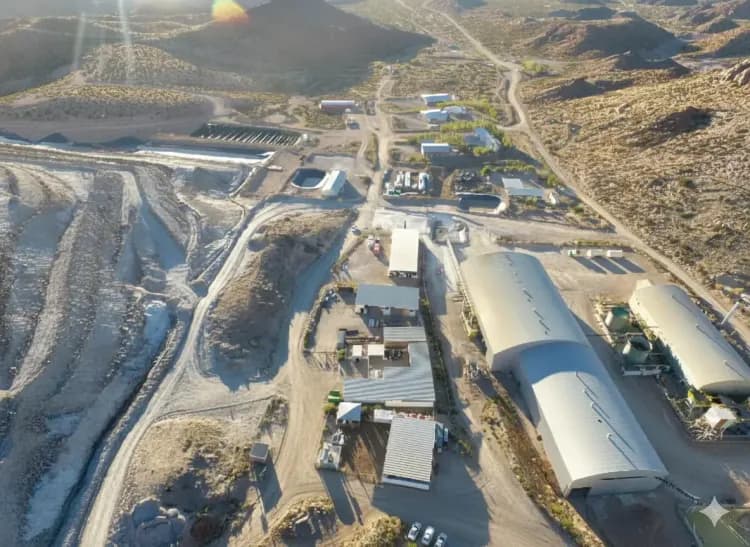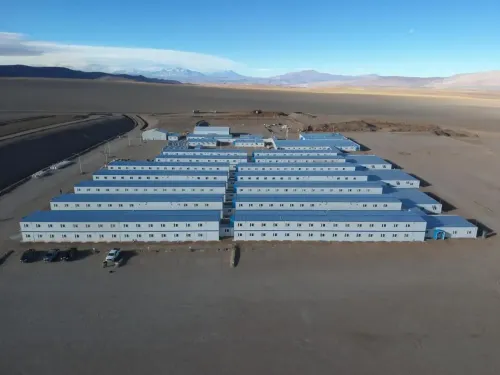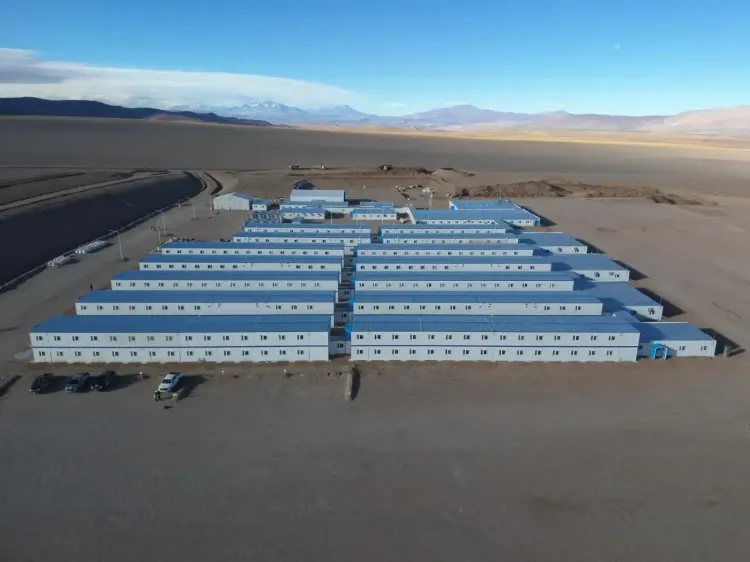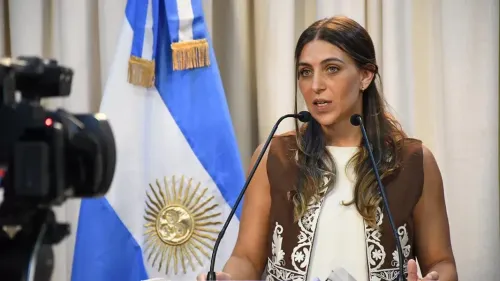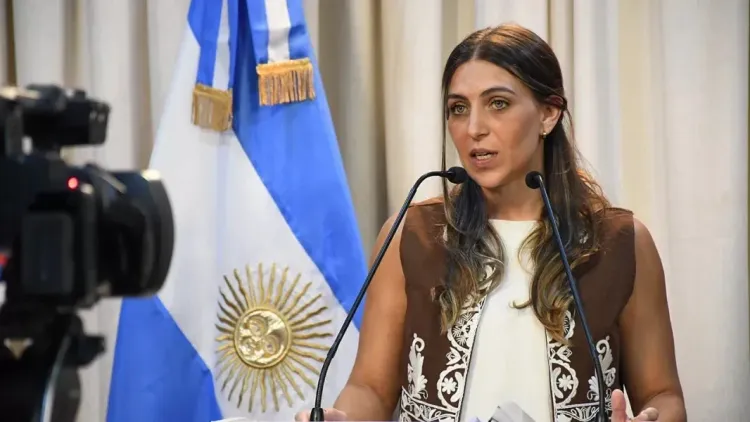“From a resources point of view, I think it has been very positive for the Australian economy that a lot of our major resource exports have been able to continue, in particularly iron ore, coal and LNG, that have been very solid performers and major earners for the Australian economy during this period,” said Neville Power, Chairman of the National COVID-19 Commission in his opening statement at the Mines and Money event in June this year. “The Australian economy is fairing much better than a lot of other economies that have been more seriously impacted.”
In addressing the audience, Neville pointed out that “Whilst Australia and New Zealand might be islands that have fairly low levels of coronavirus, in a world that has very high levels, which will restrict travel, the likely impact is on the demand for our raw materials and resources going forward.”
“So, while it might not be impacting us from a supply point of view, I think there is a real question about the global economy and the impacts on demand for us here.”
Neville also said that “Resources is a major consumer of imported manufactured goods, and there is an opportunity for us to develop greater scale and competence in our local manufacturing sector.”
“This can be accelerated by the mineral processing and METS sector, and a lot of our mining equipment that is procured from overseas; if we are able to consolidate it here, then we could develop manufacturing here in Australia to supply a lot of those items, because we do have the volumes here.”
“The other area we are looking at is to accelerate exploration so that we can try and develop more of the resource sector here in Australia and reduce the approvals time frame. I know firsthand how difficult it can be to get through the approval processes, the number of approvals required and the time frame to do that.”
Industry would agree with Neville that accelerating the mineral processing and Mining Equipment, Technology and Services (METS) sector, and also exploration opportunities here in Australia, will certainly play a part in recovery, since “the resources sector is such an incredibly important sector for us; we want to make sure it is healthy and it is growing as fast as it can.”
The question is, what needs to be done to support this? Although this will be covered at the upcoming International Mining and Resources Conference (IMARC) Online, we asked some of the experts for their opinion, ahead of their appearance this November.
“Whether it’s recovery from the economic impact of COVID-19 or whether it’s the long term continued economic development of Australia, mining and the resources industry will play an essentially pivotal role,” said EMR Capital’s Executive Chairman, and IMARC Ambassador, Owen Hegarty.
“We have to play to our competitive strengths,” he said. “We are blessed with abundant accessible natural resources. We have developed world class minerals exploration, development and operating technology and technical capability. We’ve grown a world class METS sector. We have excellent access to world-wide finance and markets for our products. We have to keep doing it in spades!”
Owen’s suggestions for industry and Government is to, “Firstly, recognise the opportunity across all levels of society and Government and go for it! Encourage, foster, enable.”
“Secondly, streamline the approvals process at all levels; adopt a national code of encouragement and cooperation,” and lastly, Owen said, “Educate, train, develop a highly skilled and committed work force, at all levels, to ensure the sustainability of our great industry.”
On the back of the Prime Minister’s announcement of a $1.5 billion Modern Manufacturing Strategy, focused on helping build the competitiveness, scale and resilience of Australia’s economy, we also spoke with METS Ignited’s Chief Executive Officer, Adrian Beer on his thoughts on the opportunity for Australia’s resources industry in driving economic recovery.
“Historically, many of the technology advancements have been embraced by international technology companies and OEM’s (Original Equipment Manufacturers) who have gone on to productise and commercialise these innovations within their global product portfolios. As a consequence, we have seen Australia become a kind of proving ground, a demonstration market for some of the world’s most significant technology advances.”
Adrian said that in particular, “areas such as safety management, our approach to sustainability in meeting our ongoing primary resource needs, and the advances in data and analytics as well as robotics and automation continue to feature heavily in the new technologies applied within our sector. Often these capabilities are taken offshore and sold back to our local operators and market.”
Aligned with Neville’s comments earlier this year, and also with the Prime Minister’s announcement, Adrian said, “Today, this practical experience in the application of technology provides Australia a tremendous opportunity – but requires a new approach to the development and commercialisation of these innovations. While much of the value created by the technology has been in the production side of our resources industry, developed in partnership with our world leading research sector – to realise the full potential of this capability we must focus our efforts on productising and commercialising these technologies here within our local economy.”
“As a nation, we have to find more effective ways to turn these capabilities into products and services down-under. By commercialising these end user outcomes and selling them as products and services to other producers both in our local economy and abroad, we have an immediate opportunity to build our sovereign capabilities in areas where we have a natural competitive advantage.”
Adrian cited however, that “One of the barriers in the past has been the misconception that the technologies developed within the resources sector are mining specific.»
“More often than not however, they are equally applicable to many other primary industry sectors who face similar challenges. One such example is MyPass Global, a local vendor who simplified the task of managing the various skills and certifications required by mining workers that worked across multiple operations. The MyPass application has now been adopted by the Victorian Government and forms the basis of Victoria’s “We Volunteer” program.”
“This example highlights how in many cases, the challenges facing the mining industry are similar in need, and can be readily solved, by technology that can then be applied to multiple other sectors.”
“The technology, skills, and the capabilities of our METS sector is the result of many years of practical experience and provides an immediate opportunity for other sectors to benefit,” Adrian said.
“But the key opportunity is the economic contribution that could be leveraged, by building out Australia’s local technology sector as a dedicated segment of the economy. This will create greater demand for future skills and capitalise on what is already a high performing and highly capable local METS Sector.”
Chief Executive Officer of the Minerals Council of Australia, Tania Constable shared her ideas on what needed to be done to support the mining and resources’ industry.
“Mining is one of Australia’s leading industries – the largest contributor to economic growth in this country over the last decade and supporting more than 1.1 million jobs across the country while directly accounting for nearly 9 per cent of Australia’s GDP,” Tania said. “With world mineral and energy demand likely to continue growing after the COVID pandemic, mining is well positioned to continue its leading role in the Australian economy.”
“Competition to supply these growing markets will rise as other nations recover from COVID-19.”
Tania said, “Australia is endowed with many high-grade mineral deposits. But we’re not unique in this regard and emerging mining jurisdictions in South America, Africa and central Asia are already attracting considerable investor interest.”
“To maximise our investment appeal, Australia needs a series of productivity enhancing reforms.”
When asked to explain this further, Tania responded saying, “First, Australia needs to retain its competitive edge in exploration and geoscience. We are world leaders in developing and deploying new technologies, yet other regions will be quick to catch up – particularly on pre-competitive geoscience, which needs greater funding from governments in Australia to attract the investment we need in greenfield exploration.”
“We need to reduce regulatory delays in gaining project approvals.” A similar comment also made by Neville and Owen.
“This does not mean reducing our standards of environmental management and sustainability – essential strengths of the Australian mining industry which will become sources of competitive advantage as customers increasingly look for ethically sourced minerals,” she said. “It’s clear that approval processes need to be streamlined to get the projects that meet these high standards and provide regional jobs operating faster.”
“Australia needs to attract more international investment,” said Tania. “Mining along with the broader economy has prospered by attracting international finance to capital intensive resources projects around Australia.”
“These not only create many construction jobs; they support many highly-paid operating jobs in regional Australia. Continuing this flow of investment means having policies that support foreign investment along with an internationally competitive tax rate.”
“Australia’s corporate tax rate is among the highest in the OECD. This must be addressed if we to remain competitive in attracting resources investment which creates jobs and sustains regional communities.”
“Finally, we need to ensure the industry has access to a highly-skilled workforce that is ready to operate the mines of the future,” again, a comment that also resonated with Owen. “The Australian Government should continue to work with industry to refocus skills curricula to meet future needs along the full mining and METS value chain and incorporate contemporary skill sets and qualifications linked to technology for the modern mining sector (such as automation and data analytics), transferable to the METS and allied sectors.”
Owen, Adrian and Tania will all be speaking at IMARC Online which runs from 24-27 November and this year, for the first time ever, attendees can access the conference presentations for free. Claim your free expo and content pass here.
For further information please visit imarconline.com
The International Mining and Resources Conference (IMARC) is where global mining leaders connect with technology, finance and the future. IMARC Online brings together decision makers, mining leaders, policy makers, investors, mining buyers, technical experts, innovators and educators from the global mining and resources community together to interact, network, learn and engage. With the event being online, attendees are no longer constrained by geographic boundaries, allowing for even more international attendees than ever before. IMARC is developed in collaboration with its founding partners the Victorian State Government of Australia, Austmine, AusIMM and Mines and Money.
Media Contact:
Samantha Morgan
Head of Marketing – Asia Pacific
samantha.morgan@imarcmelbourne.com
